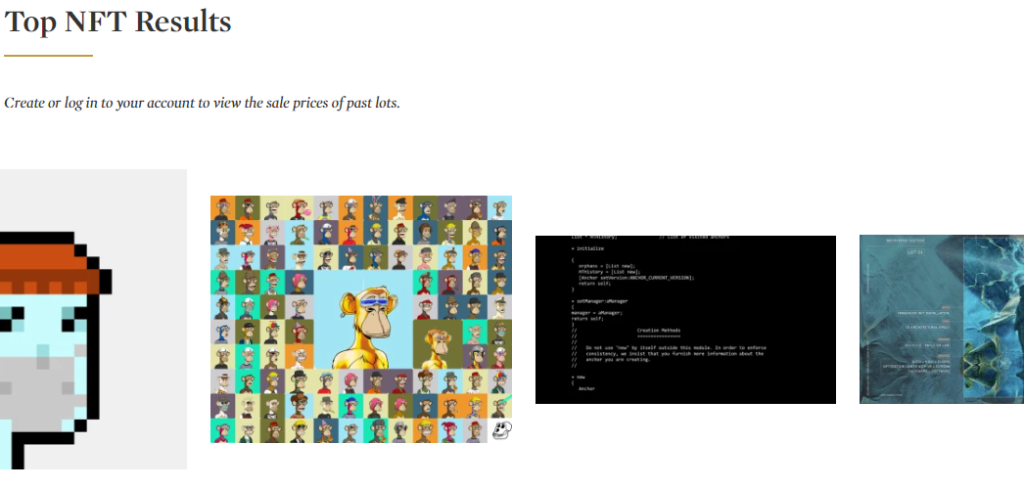In the ever-evolving landscape of the digital age, online business ideas for 2023 have become a driving force of innovation, economic growth, and entrepreneurship. As technology continues to reshape how we live and work, the opportunities to establish and flourish in the online business sphere have never been more abundant.
Whether you’re an aspiring entrepreneur with a vision or an experienced business owner seeking to expand your digital footprint, this comprehensive exploration of online business ideas will serve as a source of inspiration and guidance. From e-commerce ventures to cutting-edge tech startups, the following ideas encapsulate the diversity and dynamism of the online business world, offering a roadmap for those eager to navigate and succeed in this exciting domain.
1. Selling Online Courses
Online learning has become a mainstream phenomenon, and its popularity continues to surge. The convenience, flexibility, and accessibility of online courses have made education more inclusive, transcending geographical barriers and accommodating diverse learning styles. Whether you’re diving into Excel, digital marketing, or looking to learn Japanese online, the options are endless. This has led to an ever-expanding market of learners hungry for knowledge and skills that can improve their lives, careers, and personal development.
Selling online courses is more than just sharing information; it’s a business opportunity with significant potential. A well-designed and valuable online course can generate a steady stream of income, often with minimal ongoing effort once it’s created. The scalability of online courses means that you can potentially reach thousands of students worldwide, providing a valuable service while also achieving financial independence.

2. Becoming a Freelancer
The first step toward becoming a successful freelancer is introspection. Evaluate your skills, strengths, and interests to determine the services you can offer. Consider your professional background, expertise, and passions. Your skills could range from graphic design and programming to writing, marketing, or even project management.
A robust portfolio is your calling card in the freelance world. Assemble a collection of your best work to showcase your capabilities to potential clients. If you lack relevant samples, consider doing pro bono or personal projects to demonstrate your skills and build your portfolio.
Get exclusive access to all things tech-savvy, and be the first to receive
the latest updates directly in your inbox.
Becoming a freelancer is a journey filled with opportunities for personal and professional growth. It offers the chance to be your boss, take control of your career, and find a work-life balance that suits your needs. However, freelancing also requires dedication, adaptability, and a willingness to continually learn and evolve. With the right skills, mindset, and strategic approach, freelancers can carve out fulfilling and financially rewarding careers in the ever-expanding gig economy.

3. Open an Online Store
The first step in opening an online store is to choose a niche or product category. Selecting a niche that aligns with your interests, expertise, or market demand is crucial. Whether it’s fashion, electronics, handmade crafts, or specialized gourmet foods, your niche will define your target audience and competition. Conduct thorough market research to understand your target audience, competitors, and industry trends. Identify gaps in the market, analyze consumer behavior, and pinpoint opportunities to differentiate your online store.
Craft a comprehensive business plan outlining your goals, budget, and marketing strategy. Define your unique selling proposition (USP), pricing strategy, and financial projections. A well-thought-out business plan is a roadmap for your e-commerce venture, and resources like ZenBusiness provide additional guidance on the key steps to launching an online store.
Opening an online store is a rewarding journey that combines entrepreneurship, creativity, and technology. While it requires careful planning and dedication, the potential for success and growth in the world of e-commerce is vast. With the right niche, strategy, and commitment, your online store can not only thrive but also provide you with the satisfaction of turning your passion into a profitable business in the digital age.

4. Video Producer
At its core, a video producer is responsible for overseeing all aspects of video production, from concept development and planning to shooting, editing, and post-production. This role requires a combination of creative vision, project management skills, and technical expertise. Video producers collaborate with a team of professionals, including directors, camera operators, editors, and scriptwriters, to bring a project to fruition.
Skills and Qualities of a Video Producer
- Crafting Visual Stories
- The Role of a Video Producer
- Skills and Qualities of a Video Producer
- Steps to Becoming a Video Producer
- Education and Training
- Gain Experience
- Network
- Specialize
- Create a Portfolio
- Find Work
- Continuous Learning
- Challenges and Rewards of Video Production
However, the satisfaction of seeing your creative vision come to life on screen, the opportunity to tell compelling stories, and the potential for artistic and financial success make it a fulfilling career choice for those passionate about visual storytelling. As a video producer, you have the power to captivate, inspire, and entertain audiences with the magic of moving images, making it a profession that combines artistry with technical expertise in the digital age.
5. Embarking on Your Blogging Journey
The first step in starting a blog is to define your niche or area of focus. Consider your interests, expertise, and what you’re passionate about. Your niche should align with your intended audience and the purpose of your blog, whether it’s to entertain, educate, inspire, or promote products and services.
Selecting the right blogging platform is essential. Popular options include WordPress, Blogger, Medium, and Wix. Each has its own set of features and customization options, so choose one that aligns with your goals and technical skills.
Consistency is key to building a loyal readership. Stick to a regular posting schedule, and continue to learn and evolve as a blogger. Starting a blog is a rewarding endeavor that offers a platform for self-expression, sharing knowledge, and connecting with like-minded individuals. It’s a journey of self-discovery, creativity, and community building in the digital age.
Wpbeginner is a blog by Syed Moiz Balkhi. He has appeared on numerous well-known online platforms such as Mashable, Yahoo, Huffington Post, Business Insider, and various others. His revenue streams encompass AdMob, premium subscriptions, direct advertising, and earnings from affiliate commissions.


6. Website Developer
Website developers are the masterminds who bring web concepts to life. Their primary responsibility is to design, create, and maintain websites and web applications that function seamlessly and provide exceptional user experiences. The role can vary from front-end developers, who focus on the visual aspects and user interface, to back-end developers, who work behind the scenes to ensure data handling, security, and functionality.
Website development continues to evolve with emerging technologies such as AI, augmented reality (AR), virtual reality (VR), and progressive web apps (PWAs). As the digital landscape expands, website developers will play an increasingly significant role in shaping the online experiences of the future.
In a world where the internet is the gateway to information, entertainment, business, and communication, website developers are the architects building the bridges that connect us all. Their dedication to crafting functional, beautiful, and secure online spaces ensures that our digital interactions are seamless and enjoyable, making them pivotal players in the ongoing digital revolution.

7. Publishing an eBook
The eBook, a digital counterpart to the printed book, has transformed the way we read, write, and publish. Whether you’re a seasoned writer or a budding wordsmith, publishing an eBook offers an accessible, cost-effective, and versatile way to reach a global audience.
Choose a platform for eBook distribution. Some popular options include Amazon Kindle Direct Publishing (KDP), Apple Books, Smashwords, and Draft2Digital. Each platform has its own requirements and benefits. Decide on the pricing strategy for your eBook. Consider factors like genre, competition, and the length of your book. Some authors choose to offer their eBooks for free initially to build a reader base.
Publishing an eBook offers an unprecedented opportunity for writers and content creators to share their stories, knowledge, and expertise with a global audience. While it requires careful planning, marketing efforts, and dedication to craft a successful eBook, the digital realm opens doors to limitless possibilities. Whether you aim to publish fiction, non-fiction, guides, or any other genre, the journey of eBook publishing is a dynamic and rewarding experience, allowing you to connect with readers from around the world in the most accessible way imaginable.

8. Dropshipping Business
At its core, dropshipping is a retail fulfillment method where a store doesn’t keep the products it sells in stock. Instead, when a store sells a product, it purchases the item from a third party and has it shipped directly to the customer. This eliminates the need for inventory management, warehousing, and order fulfillment by the retailer.
Dropshipping represents an exciting opportunity to enter the world of e-commerce with relatively low risk and upfront investment. While it comes with its unique challenges, a well-executed dropshipping business can provide financial independence and the flexibility to carve out your niche in the competitive online retail landscape. Success in dropshipping requires diligence, adaptability, and a commitment to delivering quality products and outstanding customer service to build a loyal customer base.
You can also find dropshipping apps here.
9. Sell Trifted Goods
Thrifted goods encompass a wide range of items, including clothing, accessories, furniture, collectibles, and more. These items have previously been owned and are typically sourced from thrift stores, estate sales, garage sales, or online marketplaces.
Key Steps to Succeed in Selling Thrifted Goods
- Sourcing: Find reliable sources for thrifted goods, such as thrift stores, estate sales, auctions, flea markets, or even online marketplaces like eBay and Craigslist. Cultivate relationships with sellers or thrift stores to access a consistent supply of items.
- Quality Inspection: Thoroughly inspect each item for quality, condition, and authenticity. Ensure that items are clean, free from damage, and accurately described.
- Pricing Strategy: Determine pricing based on factors like rarity, brand, condition, and market demand. Consider starting with competitive prices to attract initial customers.
- Online Presence: Create an online platform to showcase your thrifted goods. This can be a website, an online store on platforms like Etsy or eBay, or even social media channels.
- High-Quality Photography: Invest in high-quality photos that accurately represent the items. Good photography can significantly impact a buyer’s decision.
- Marketing and Branding: Develop a unique brand identity and marketing strategy. Utilize social media, email marketing, and content creation to reach and engage your target audience.
- Customer Service: Provide excellent customer service by promptly responding to inquiries, addressing customer concerns, and processing orders efficiently.
- Feedback and Reviews: Encourage customer feedback and reviews to build trust and credibility. Positive reviews can attract more customers.
Selling thrifted goods is not only a profitable business opportunity but also a way to contribute to sustainable consumer practices. It allows you to indulge in your passion for finding unique treasures while offering customers access to affordable and environmentally responsible shopping options.

10. Affiliate Marketing
Affiliate marketing is a performance-based marketing model where individuals, known as affiliates or publishers, earn a commission for driving traffic or sales to a merchant’s website through their marketing efforts. Affiliates promote products or services using unique affiliate links, and when a sale or action occurs through those links, they earn a percentage of the sale’s value.
Advantages of Affiliate Marketing
- Low Barrier to Entry: Starting an affiliate marketing business requires minimal upfront investment. You don’t need to create your products or services.
- Passive Income Potential: Once you set up your affiliate links and marketing content, you can earn commissions on an ongoing basis without constant active involvement.
- Diverse Income Streams: Affiliates can promote products or services across various niches, enabling them to diversify their income streams.
- Scalability: As your online presence and audience grow, you can scale your affiliate marketing efforts to reach a wider audience.
Affiliate marketing offers a flexible and scalable path to earning income online while leveraging your influence and expertise. Success in affiliate marketing requires dedication, consistency, and a commitment to providing value to your audience. As you build trust and credibility within your niche, your affiliate marketing venture has the potential to grow into a significant source of passive income, allowing you to capitalize on the power of online influence.
11. Designing Website Themes
A website theme is a pre-designed template that determines a website’s layout, color scheme, typography, and overall style. It serves as the framework for a website’s appearance and often includes templates for various pages, such as the homepage, blog posts, product pages, and more. Website themes are essential for web developers, designers, and businesses looking to establish a cohesive and visually appealing online presence.
Design Process for Website Themes
- Conceptualization: Begin by brainstorming ideas, considering the website’s purpose, target audience, and brand identity. Create sketches or wireframes to plan the layout and structure.
- Design: Use graphic design software such as Adobe Photoshop, Sketch, or Figma to create the visual elements of the theme, including layout, typography, color schemes, and graphics.
- Coding: Translate the design into code using HTML, CSS, and JavaScript. Ensure that the theme is responsive and functional across different browsers.
- Testing: Thoroughly test the theme for compatibility, responsiveness, and functionality. Address any bugs or issues that arise during testing.
- Optimization: Optimize the theme for speed and performance by minimizing file sizes and optimizing images.
- Documentation: Create documentation for users or developers who will be using the theme. Include installation instructions and customization options.
- Distribution: Publish the website theme on popular platforms such as WordPress, Shopify, or independent theme marketplaces. Consider both free and premium options.
- Support and Updates: Provide ongoing support to users, addressing their questions and issues. Regularly update the theme to ensure compatibility with software updates.
Designing website themes is a blend of creativity, technical skills, and an understanding of user experience. By crafting visually stunning and functional themes, you can make a significant impact in the digital world while also generating income from your design talents. Whether you’re designing themes as a hobby or pursuing it as a full-fledged business, the world of website theme design offers endless opportunities to shape the digital aesthetics of the web.
12. Becoming a Virtual Assistant
A virtual assistant is a remote professional who offers administrative, technical, creative, or personal support services to clients. These services can range from managing emails, scheduling appointments, and bookkeeping to more specialized tasks like social media management, content writing, and graphic design.
A virtual assistant salary can vary significantly depending on factors such as experience, niche, and location. Rates may range from hourly fees to project-based pricing. As you gain experience and expand your client base, your earning potential can grow significantly. Some virtual assistants also transition into agency owners, managing a team of VAs and scaling their businesses.
Becoming a virtual assistant offers the flexibility to work from anywhere, choose your clients, and tailor your services to your strengths and interests. It’s a profession that allows you to build a thriving career while maintaining a work-life balance that suits your needs. With the increasing demand for remote support services, the role of virtual assistants continues to evolve and offers a promising path in the world of remote work.

13. Social Media Manager
A Social Media Manager is responsible for planning, implementing, and monitoring a brand’s social media strategy to increase brand awareness, drive engagement, and achieve marketing goals. This role extends beyond simply posting updates; it involves crafting a cohesive online identity and fostering meaningful connections with the target audience.
The earning potential of a Social Media Manager varies depending on factors like experience, location, industry, and the size of the organization. Experienced professionals or those managing multiple clients as freelancers can command higher incomes. With proven expertise and a track record of successful campaigns, Social Media Managers can advance to roles such as Social Media Director, Marketing Manager, or Digital Marketing Strategist.
As businesses continue to recognize the significance of social media in their marketing efforts, the demand for skilled Social Media Managers remains strong. This profession offers the opportunity to shape and execute online strategies, impact brand perception, and drive meaningful engagement in a digital world where social media is the heartbeat of communication and connection.

14. Graphic Designer
A graphic designer is tasked with creating visual elements that convey a brand’s message, values, and personality. In the online business landscape, this role extends to designing websites, social media graphics, marketing materials, product visuals, and more. A well-executed design can not only attract attention but also communicate trust and professionalism.
Skills and Qualities of a Successful Graphic Designer
- Creativity: The ability to generate innovative and visually appealing concepts.
- Technical Proficiency: Proficiency in graphic design software like Adobe Photoshop, Illustrator, or Canva.
- Attention to Detail: Meticulousness in ensuring designs are pixel-perfect and aligned with brand guidelines.
- Communication: Effective communication with clients or team members to understand design requirements and provide updates.
- Time Management: Ability to meet deadlines and handle multiple projects simultaneously.
- Adaptability: Willingness to adapt to changing design trends and technologies.
- Problem-Solving: Capacity to find creative solutions to design challenges.
In the dynamic world of online business, where digital aesthetics hold immense power, collaborating with a skilled graphic designer is a strategic investment. Their ability to bring your brand to life through captivating visuals can elevate your online presence, drive engagement, and ultimately contribute to the success and growth of your business in the digital landscape.

15. App Development
App development refers to the process of designing, creating, and maintaining software applications that run on various platforms, including mobile devices (iOS and Android), desktops (Windows, macOS), and the web. These applications can serve a wide range of purposes, from entertainment and social networking to productivity and e-commerce.
Skills and Tools for App Developers
- Programming Languages: Familiarity with languages like Java, Kotlin, Swift, Python, JavaScript, and others, depending on the platform.
- Development Frameworks: Knowledge of development frameworks and libraries like React Native, Flutter, or Angular for cross-platform development.
- Database Management: Understanding of databases and their management systems, such as MySQL, MongoDB, or Firebase.
- Version Control: Proficiency in version control systems like Git to collaborate with other developers and manage code changes.
- UI/UX Design: Basic design skills to create visually appealing and user-friendly interfaces.
- Problem-Solving: Ability to analyze and solve complex technical challenges.
As technology continues to advance, the future of app development holds exciting possibilities. As this is an ongoing thing, companies with applications of their own should look to hire mobile app developers. Some companies go for outsourcing as well but it varies according to every company’s needs. Emerging technologies like augmented reality (AR), virtual reality (VR), artificial intelligence (AI), and blockchain are expected to shape the next generation of applications. Moreover, the demand for mobile apps and web applications across industries such as healthcare, finance, and education is expected to continue to grow.
16. Sell Hand Made Goods
Handmade goods encompass a wide range of items crafted by artisans, makers, and creators using their hands, skills, and creative talents. These items often include jewelry, clothing, accessories, home decor, artwork, and more. The appeal of handmade goods lies in their uniqueness, quality, and the personal touch that goes into each creation.
Steps to Start Selling Handmade Goods
- Identify Your Niche: Determine the type of handmade goods you want to create and sell. Consider your skills, interests, and market demand.
- Market Research: Study your target market, competitors, and pricing trends to understand your niche better.
- Product Development: Create a portfolio of high-quality handmade goods. Experiment with designs, materials, and styles to differentiate your products.
- Branding: Develop a brand identity that reflects your unique style and resonates with your target audience.
- Online Presence: Create an online platform to showcase and sell your handmade goods. This could be an e-commerce website, an Etsy store, or a presence on social media platforms.
- Photography: Invest in professional-quality product photography to showcase your items effectively.
- Pricing Strategy: Determine pricing that covers your costs, includes a profit margin, and remains competitive in the market.
- Marketing and Promotion: Promote your handmade goods through social media, email marketing, search engine optimization (SEO), and collaborations with influencers or local stores.
- Customer Service: Provide excellent customer service, including timely responses to inquiries and professional handling of orders and returns.
- Shipping and Packaging: Ensure safe and attractive packaging for your products. Offer various shipping options and provide tracking information to customers.
The earnings potential for selling handmade goods varies based on factors like product type, pricing, marketing efforts, and customer base. Some artisans earn a supplementary income, while others turn their handmade goods into full-time businesses. As you gain experience, build a loyal customer base, and refine your business strategies, your income potential can grow significantly.
17. Selling Prints
Print sales encompass a diverse array of visual artworks reproduced in print form. These prints can range from traditional paintings and illustrations to photographs, digital art, and graphic designs. Selling prints offers artists and photographers a means to make their work accessible to a broader audience, allowing people to enjoy and own a piece of art without the expense of an original.
How to Start Selling Prints?
- Select Your Best Work: Choose the pieces of art or photography that you believe will resonate with your target audience.
- Photograph or Digitize Your Work: For traditional artworks, professional photography or scanning is necessary to create high-quality digital files.
- Choose Printing Options: Research and select a reputable print service or print-on-demand platform to produce your prints. Consider factors like print quality, pricing, and shipping options.
- Determine Pricing: Set competitive yet profitable prices for your prints. Consider factors such as production costs, your reputation, and market demand.
- Create an Online Presence: Develop a professional website or utilize online marketplaces to showcase and sell your prints. Include high-quality images, detailed descriptions, and purchase options.
- Market Your Prints: Utilize social media, email marketing, and collaborations with other artists or influencers to promote your prints.
- Shipping and Packaging: Invest in safe and attractive packaging for your prints to ensure they arrive in excellent condition.
- Customer Service: Provide excellent customer service by promptly responding to inquiries and addressing any issues.
The earnings potential for selling prints varies widely depending on factors such as the popularity of your work, your marketing efforts, and the size of your customer base. Some artists and photographers generate supplementary income from print sales, while others build successful careers centered around print sales and even gallery exhibitions.
18. Remote Customer Service Agent
A Remote Customer Service Agent is responsible for addressing customer inquiries, resolving issues, providing product information, and ensuring overall customer satisfaction via various communication channels, such as phone, email, chat, or social media. The key difference between a traditional customer service agent and a remote one is that the latter performs these tasks from a remote location, often their home or a remote office.
Skills and Qualities of a Successful Remote Customer Service Agent
- Communication Skills: Excellent written and verbal communication skills are crucial for clear and effective customer interactions.
- Empathy: The ability to understand and empathize with customer concerns, even in challenging situations.
- Problem-Solving: Strong analytical and problem-solving skills to address a variety of customer issues.
- Patience: The capacity to remain calm and patient, especially when dealing with frustrated or irate customers.
- Adaptability: Flexibility to adapt to different customer personalities, communication channels, and company procedures.
- Technical Proficiency: Familiarity with customer service software, CRM systems, and other digital tools.
- Time Management: Effective time management and organization skills to handle multiple inquiries efficiently.
Remote customer service offers a promising career path for individuals who excel in communication and enjoy helping others. It provides the opportunity to work for diverse companies and industries, all while enjoying the benefits of remote work. As businesses continue to embrace remote customer service models, the role of a Remote Customer Service Agent remains integral in ensuring exceptional customer experiences in the digital age.
19. Private Chef
Becoming a Private Chef is not only a culinary journey but also a lifestyle that allows chefs to explore their creativity and passion for food while building close relationships with clients. It’s a profession that combines the art of cooking with the joy of delivering exceptional dining experiences in the most intimate and exclusive settings—truly a feast for both the palate and the soul.
Career Path and Opportunities
A career as a Private Chef offers a wide range of opportunities and can take various forms:
- Personal/Private Chef: Working exclusively for a single client or family, providing daily meals and special occasions.
- Event Catering: Catering private events, parties, weddings, or corporate gatherings.
- Traveling Chef: Accompanying clients on vacations or business trips to provide culinary services.
- Yacht or Vacation Property Chef: Cooking for clients on luxury yachts or in vacation homes.
- Freelance/Private Dining: Offering bespoke dining experiences in clients’ homes or at special locations.
- Celebrity/Private Chef: Serving high-profile individuals, celebrities, or public figures.
The earnings of a Private Chef can vary widely depending on factors such as location, client expectations, and the frequency of service. Experienced Private Chefs with a strong reputation often command higher fees for their services.
20. Proofreading
The primary responsibility of a proofreader is to carefully examine written text to catch and rectify errors that might have been missed during the writing and editing process. Proofreaders play a crucial role in enhancing the overall quality and readability of documents, ensuring that the final product is free from language and typographical flaws.
Skills and Qualities of a Successful Proofreader
- Attention to Detail: An unwavering eye for detail to spot even the tiniest errors.
- Language Proficiency: Proficiency in grammar, punctuation, and syntax in the relevant language(s).
- Critical Thinking: The ability to think critically and analytically to identify and resolve complex language issues.
- Time Management: Effective time management to meet deadlines and handle multiple projects.
- Communication: Clear and concise communication with writers, editors, or clients to address queries and provide feedback.
- Consistency: A commitment to maintaining consistency in style, formatting, and terminology.
- Discretion: A professional approach to maintain confidentiality, especially for sensitive or unpublished material.
Proofreaders serve as the guardians of language, preserving the integrity and clarity of written communication. Their dedication to precision and detail ensures that written materials are polished to perfection, enabling the ideas, messages, and information they convey to shine brightly and resonate effectively with their intended audience.
21. SEO Expert
An SEO Expert is a professional who specializes in optimizing websites to improve their visibility in search engine results pages (SERPs). They use a combination of technical, content, and marketing strategies to enhance a website’s ranking for specific keywords and phrases relevant to its content or industry. The ultimate goal is to increase organic (non-paid) traffic, boost brand awareness, and drive conversions.
Skills and Qualities of a Successful SEO Expert:
- Technical Proficiency: A deep understanding of SEO tools, analytics platforms, and web development principles.
- Analytical Thinking: The ability to analyze data, identify trends, and make data-driven decisions.
- Content Creation: Skill in crafting high-quality, engaging, and SEO-friendly content.
- Keyword Research: Proficiency in keyword research tools and strategies to identify valuable keywords.
- Link-Building Strategies: Knowledge of effective link-building tactics that adhere to search engine guidelines.
- Adaptability: The capacity to adapt to evolving search engine algorithms and industry trends.
- Communication: Strong communication skills to collaborate with content creators, web developers, and stakeholders.
The work of an SEO Expert is a constant endeavor to navigate the complex digital labyrinth, adapting strategies and tactics to align with the ever-changing algorithms of search engines. Their expertise is instrumental in helping businesses and websites thrive in the digital age, ensuring that valuable content and services reach the right audience at the right time.
22. Translator
A translator is a professional who specializes in converting written or spoken content from one language (the source language) into another language (the target language) while preserving the original meaning, tone, and intent. Translators work with a wide range of materials, including documents, books, legal contracts, websites, technical manuals, films, and more.
Skills and Qualities of a Successful Translator
- Bilingual Proficiency: Mastery of both the source and target languages, including a deep understanding of grammar, vocabulary, and cultural nuances.
- Linguistic Dexterity: The ability to handle a wide range of texts and subjects, from technical and legal documents to creative literature.
- Research Skills: Proficiency in conducting research to understand specialized terminology and concepts.
- Attention to Detail: Meticulous attention to detail to ensure translation accuracy and consistency.
- Cultural Awareness: Sensitivity to cultural differences and the capacity to adapt content accordingly.
- Confidentiality: Adherence to strict confidentiality and ethical standards, especially when dealing with sensitive or confidential information.
In a world where communication knows no borders, translators serve as the unsung heroes who enable dialogue, understanding, and cooperation among nations and cultures. Their work is instrumental in breaking down language barriers and making the world a more interconnected and inclusive place.
23. Online T-Shirt Shop
T-Shirt Online Shops blend fashion, personal expression, and e-commerce, offering a dynamic space for both shoppers and entrepreneurs. Whether you’re looking for a unique T-shirt to express your style or considering launching your own T-Shirt Online Shop, these virtual storefronts continue to shape the fashion industry and provide a canvas for self-expression in the digital age.
Starting and Running a T-Shirt Online Shop
For entrepreneurs and designers looking to venture into the world of T-Shirt Online Shops, several key steps are involved:
- Niche Selection: Identify a specific target audience or niche, such as vintage T-shirts, eco-friendly materials, or niche fandoms, to distinguish your shop.
- Sourcing Suppliers: Partner with reliable suppliers or consider print-on-demand services that offer various T-shirt options and printing techniques.
- Website Setup: Create a user-friendly website or use e-commerce platforms like Shopify, WooCommerce, or Etsy to set up your online shop.
- Design and Inventory: Develop a compelling collection of T-shirt designs or collaborate with artists. Ensure quality control for both design and printing.
- Pricing Strategy: Determine competitive pricing that covers production costs, provides a profit margin, and remains attractive to customers.
- Marketing and Promotion: Employ digital marketing strategies such as social media advertising, email marketing, and search engine optimization to promote your shop.
- Customer Service: Offer exceptional customer service, including prompt responses to inquiries, efficient order processing, and hassle-free returns.
- Shipping and Packaging: Establish reliable shipping methods and invest in attractive, eco-friendly packaging to enhance the customer experience.
24. Online Jewelry Shop
The advent of online jewelry brands has revolutionized the world of fine accessories, offering a virtual treasure trove of exquisite pieces that cater to a diverse array of tastes and occasions. These brands have harnessed the power of e-commerce to provide consumers with easy access to a wide range of jewelry, from classic and timeless designs to modern, artisanal creations. In this exploration, we’ll delve into the essence of online jewelry brands, their appeal, and the factors that contribute to their success in the digital age.
Starting and Running an Online Jewelry Brand
For entrepreneurs and jewelry enthusiasts looking to establish their own online jewelry brand, several key steps are involved:
- Market Research: Identify your target audience, niche, and competitors within the jewelry market to understand consumer preferences and trends.
- Brand Development: Create a compelling brand identity, encompassing elements such as a unique name, logo, and visual style that resonates with your audience.
- Sourcing and Design: Collaborate with skilled jewelry designers or manufacturers to source or create your jewelry pieces. Ensure quality control in the production process.
- E-Commerce Website: Build a user-friendly e-commerce website or utilize platforms like Shopify, WooCommerce, or Magento to set up your online store.
- Product Line and Inventory: Develop a diverse and appealing product line, ensuring that your jewelry pieces align with your brand’s identity and target market.
- Pricing Strategy: Determine competitive pricing that covers production costs, provides a profit margin, and remains attractive to customers.
- Digital Marketing: Employ digital marketing strategies such as social media advertising, influencer partnerships, email marketing, and search engine optimization to promote your brand.
- Customer Engagement: Foster customer engagement through personalized communication, informative product descriptions, and excellent customer service.
- Logistics and Shipping: Establish efficient logistics and shipping processes to ensure timely delivery and customer satisfaction.
25. Become an Influencer
Becoming an influencer has become a coveted career path in the digital age, where social media platforms dominate our daily lives. An influencer is someone who leverages their online presence and content to influence the opinions, behaviors, and purchasing decisions of their followers. While it may seem glamorous and straightforward, the journey to becoming an influencer is often challenging and requires dedication, creativity, and a deep understanding of your niche.
Steps to Become an Influencer
Becoming an influencer involves these key steps:
- Discover Your Niche: Choose a topic you’re passionate about and knowledgeable in. Authenticity is crucial.
- Create Quality Content: Invest in good equipment, learn editing, and maintain a consistent style.
- Select the Right Platform: Pick a social media platform that suits your niche and style.
- Build Your Brand: Craft a memorable online persona, style, and messaging.
- Engage Your Audience: Interact with your followers, encourage discussions, and enhance your visibility.
- Collaborate and Network: Partner with others to expand your reach and network for opportunities.
- Monetize Your Influence: Explore income avenues like sponsored posts and merchandise, ensuring alignment with your values.
- Stay Informed and Flexible: Keep up with industry trends and adapt your strategy to evolving audience and platform needs.
- Be Patient and Persistent: Success takes time; stay motivated and learn from experiences.
26. Ghostwriting
Ghostwriters are the unsung heroes of the writing world. They are hired to articulate someone else’s thoughts, experiences, or ideas with precision and eloquence. While the credited author takes the spotlight, the ghostwriter remains hidden, bound by confidentiality agreements. This selfless act of creativity requires a unique skill set—empathy, adaptability, and the ability to mimic another’s voice while maintaining a consistent writing style.
Ghostwriting comes with its own set of challenges. The ghostwriter must navigate the client’s expectations, capture their unique voice, and often meet tight deadlines. Yet, the rewards are significant—exposure to diverse topics, collaboration with fascinating individuals, and the satisfaction of bringing untold stories to light.
Ultimately, ghostwriting plays an indispensable role in the literary world, helping authors and experts share their knowledge, experiences, and stories with the world. It broadens the scope of human creativity and enables a more extensive exchange of ideas.
27. Natural & Organic Beauty Shops
Natural & Organic Beauty Shops are a treasure trove of products derived from Mother Nature. From skincare and makeup to haircare and fragrances, these stores offer a wide array of options, all crafted with ingredients sourced from the natural world. Think botanical extracts, essential oils, and minerals – the building blocks of healthier, radiant skin and hair.
Sustainability is a core value for Natural and organic Beauty Shops. Many of these stores embrace eco-friendly packaging options, such as glass bottles, recyclable materials, and reduce plastic usage. This commitment to reducing their carbon footprint aligns with the broader sustainability movement.
Transparency is a core principle of these shops. They encourage customers to ask questions about ingredients, sourcing, and production processes, fostering a sense of trust and authenticity. Walking into a Natural and organic Beauty Shop is more than just a transaction; it’s an experience. The ambiance is typically designed to evoke a sense of tranquility and mindfulness, reflecting the broader movement toward conscious consumerism.

28. Data Entry Services
Data entry services play a pivotal role in ensuring that valuable information is organized, processed, and stored with precision. Whether it’s for digitizing paper records, maintaining databases, or extracting insights from raw data, data entry services offer a range of benefits to businesses. In this article, we’ll explore the significance of data entry services and how they contribute to effective information management.
Importance of Data Entry Services
The Significance of Data Entry Services:
- Precision: Data entry services excel in meticulous data handling. Expert operators ensure accuracy, preventing costly errors and misinformation. Data is consistently structured.
- Time Efficiency: Outsourcing data entry frees businesses to concentrate on core activities. Specialists manage data input, enhancing productivity and decision-making speed.
- Cost-Effective: Compared to in-house hiring and training, outsourcing data entry proves cost-effective. It eliminates the need for additional staff, training, and infrastructure expenses.
- Scalability: Data entry services adapt easily to business needs, whether occasional data input or continuous information management is required.
- Enhanced Data Security: In a digital age, data security is paramount. Reputable providers prioritize security through encryption, secure networks, and strict access controls, ensuring data confidentiality.
- Data Standardization: Standardized data formats are crucial for meaningful analysis. Data entry services ensure consistent formatting, simplifying analysis and insights from large datasets.
- Expertise Access: Professionals proficiently use data entry tools and software. They handle various data types, including handwritten documents, images, and digital records, enhancing data-intensive tasks.
- Core Focus: Outsourcing data entry allows businesses to allocate resources and expertise to core competencies, promoting growth and innovation.
29. Selling Stock Photos
Stock photos are pre-shot, royalty-free images available for licensing to individuals and businesses. These images cover a wide range of subjects, from landscapes and people to objects and abstract concepts. Stock photos are used in various media, including websites, blogs, social media, print materials, and advertisements.
How to Get Started?
- Diverse Portfolio: Create a varied portfolio of high-quality images, covering subjects like nature, travel, people, and lifestyle to meet diverse buyer demands.
- Licensing Know-How: Familiarize yourself with stock photo licensing, including royalty-free and rights-managed agreements, to price your work appropriately.
- Essential Gear: Invest in quality camera equipment and editing software for high-resolution, minimally processed images that appeal to buyers. Learn basic editing skills.
- Legal Preparations: For photos featuring people or private property, secure model and property releases to prevent legal complications.
- Market Insight: Research trends and keywords relevant to stock photography to enhance your images’ discoverability on stock platforms.
Where to Sell Stock Photos?
Several online platforms allow photographers to sell their stock photos. Some popular options include:
- Shutterstock
- Adobe Stock (formerly Fotolia)
- Getty Images
- iStock by Getty Images
- Alamy
- 500px Prime
- Dreamstime
- Pond5
Each platform has its submission requirements, pricing models, and commission rates, so it’s essential to research and choose the one(s) that align best with your goals.

30. Sell NFTs
Non-Fungible Tokens (NFTs) are digital assets that represent ownership or proof of authenticity of a unique item or piece of content, often stored on a blockchain. Unlike cryptocurrencies like Bitcoin or Ethereum, NFTs are indivisible, meaning they cannot be exchanged on a one-to-one basis. Each NFT has a distinct value and cannot be replicated, making it a one-of-a-kind digital collectible.
How to Sell NFTs?
- Create Digital Content: To sell NFTs, you need to create digital content that can be tokenized. This content can include digital art, music, videos, virtual real estate, virtual goods, and even tweets.
- Choose a Blockchain Platform: Select a blockchain platform that supports NFT creation and trading. Ethereum is the most popular choice, but other platforms like Binance Smart Chain, Flow, and Tezos have also gained prominence.
- Create an NFT: Using an NFT marketplace or platform like OpenSea, Rarible, or Mintable, you can mint (create) your NFT by uploading your digital content and adding relevant information such as title, description, and attributes.
- Set Pricing and Royalties: Determine the pricing of your NFT and set any royalties you wish to receive when it is resold in the future. Royalties ensure that creators continue to benefit from the value appreciation of their work.
- List for Sale: Once minted, you can list your NFT for sale on the chosen marketplace. Specify the price or start an auction, and the NFT will be available for purchase by interested buyers.
- Promote Your NFT: To attract buyers, promote your NFT through social media, art forums, and collaborations with influencers or other artists. Building a strong online presence can significantly impact your sales.
- Ownership Transfer: When a buyer purchases your NFT, the ownership is transferred to their wallet, recorded on the blockchain, and provably unique. Ethereum is a framework for other digital assets or applications, and using the best Ethereum wallet can enhance the security and management of these assets.
- Verify Authenticity: Ensure that your NFTs are genuine and not infringing on copyrights or intellectual property rights. Authenticity is crucial in the NFT market.
Selling NFTs has opened up a new frontier for artists, collectors, and content creators, allowing them to monetize digital assets and engage with a global audience. By understanding the principles of NFTs, choosing the right blockchain platform, and effectively marketing their work, individuals can participate in the digital collectibles revolution and potentially find success in this innovative market.

FAQs – Online Business Ideas for 2023
How soon can I expect to make money from my online business?
The time it takes to start earning from your online business can vary widely. Generally, it may take anywhere from several months to a few years to achieve profitability. The timeline depends on factors like your business model, niche, marketing efforts, and market conditions.
How much time should I dedicate to my online business each day?
The time commitment for your online business depends on your goals and the stage of your business. Part-time entrepreneurs might dedicate 3-4 hours daily, while full-time business owners may invest up to 60 hours or more per week. During the initial phases, expect to allocate more time to establish your business.
Do I need to hire employees for my online business?
Whether you need to hire employees depends on your business’s scale and complexity. While hiring can improve efficiency, it also comes with additional costs. Ensure your business can financially support employee salaries and evaluate the potential return on investment of each hire.
Is it possible to start an online business with a limited budget?
Yes, it is possible to start an online business with a limited budget. Many online business models, like blogging and affiliate marketing, require minimal upfront investment. However, keep in mind that investing in quality website hosting, tools, and marketing may improve your chances of success. Adapt your budget to your business goals and objectives.
What legal considerations should I be aware of when starting an online business?
Legal considerations for online businesses include business registration, taxation, intellectual property rights, data protection, and compliance with industry-specific regulations. It’s advisable to consult with legal professionals or business advisors to ensure your business operates within legal boundaries.
Conclusion
As you navigate this spectrum of opportunities, it’s essential to introspect and align your choice with your skills, experience, and financial aspirations. For those well-versed in the art of expression, ventures like blogging, freelancing, or even penning and publishing eBooks could beckon. Conversely, if your creative prowess gravitates towards sculpting, painting, or crafting, the world of crafting and selling handmade items may offer an exciting avenue.
Embarking on the odyssey of a successful digital entrepreneur demands resilience and unwavering dedication. Opting for an online business idea that resonates with your inner passions can infuse the expedition with purpose and gratification, making the climb less strenuous and the view from the top all the more beautiful.



